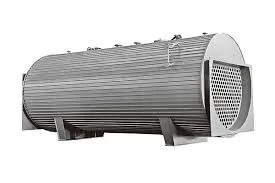Biomass-Fueled Steam Boiler Maintenance and Optimization Services for Sustainable Energy Production
The Role of Biomass-Fired Steam Boilers in Sustainable Energy Solutions
In an era where sustainable energy solutions are critical for combating climate change, biomass-fired steam boilers have emerged as a beneficial technology. These systems utilize organic materials, such as wood chips, agricultural residues, and other biomass sources, to produce steam for various applications. This article explores the significance, advantages, and considerations associated with biomass-fired steam boiler service.
Understanding Biomass-Fired Steam Boilers
Biomass-fired steam boilers are designed to convert biomass into thermal energy through combustion. The heat generated by burning biomass heats water in the boiler, producing steam that can be harnessed for electricity generation, heating, or industrial processes. Unlike fossil fuels, biomass is considered renewable because it can be replenished relatively quickly through natural processes.
Advantages of Biomass Energy
1. Renewability Biomass is a renewable energy source, meaning it can be continuously produced as long as the biological material is responsibly managed. This attribute helps reduce dependence on finite fossil fuel reserves.
2. Carbon Neutrality Biomass combustion releases carbon dioxide, but since the plants used to produce biomass absorb CO2 from the atmosphere during their growth, this process can be deemed carbon neutral. Thus, effectively managing biomass resources can help mitigate climate change impacts.
3. Reduced Waste Utilizing biomass as a fuel source can help manage agricultural and forestry waste. By converting waste materials into energy, biomass boilers minimize landfill usage and reduce greenhouse gas emissions.
4. Energy Independence Biomass resources can often be sourced locally, which supports energy independence and reduces reliance on imported fossil fuels. This characteristic can enhance local economies and create job opportunities in biomass collection and processing.
Applications of Biomass-Fired Steam Boilers
biomass fired steam boiler service

Biomass-fired steam boilers are versatile and can be used in various sectors. In the industrial sector, they can provide steam for processes like drying, pasteurization, and sterilization. In power generation, biomass plants can supply electricity to the grid, often in a combined heat and power (CHP) setup where both heat and electricity are produced simultaneously. Additionally, in the residential and commercial sectors, these boilers can be used for heating, contributing to energy-efficient building operations.
Key Considerations for Biomass Boiler Service
While the benefits of biomass-fired steam boilers are significant, potential operators should consider several aspects
1. Feedstock Availability The availability of quality biomass feedstock is critical. Sustainable sourcing practices should be adopted to ensure that harvesting operations do not disrupt local ecosystems.
2. Technical Knowledge Proper operation and maintenance are essential for optimizing biomass boiler efficiency. Operators should be trained in the specifics of biomass combustion, emissions control, and boiler maintenance to ensure reliable performance.
3. Emissions Management Although biomass is considered carbon-neutral, it can produce other pollutants, such as particulate matter and nitrogen oxides. Implementing effective emissions control technologies is essential for compliance with environmental regulations and to minimize air quality impacts.
4. Initial Investment The initial costs of installing biomass-fired steam boilers can be higher than traditional fossil fuel systems. However, the long-term savings and potential subsidies or incentives for renewable energy projects can offset these initial expenses.
5. Integration with Existing Systems Existing infrastructure may require modifications for biomass integration. Evaluating the compatibility of a biomass system with current operations is imperative for a successful transition.
Conclusion
Biomass-fired steam boilers play a pivotal role in the transition towards sustainable energy. By harnessing renewable biomass resources, these systems offer a pathway to reduce greenhouse gas emissions, minimize waste, and promote energy independence. However, stakeholders must carefully evaluate the operational challenges and environmental considerations associated with biomass energy to fully realize its potential benefits. As technology continues to evolve, the role of biomass in the global energy landscape is poised to grow, contributing to a more sustainable and resilient energy future.
-
Custom Steam Boilers Manufacturer | AI-Enhanced EfficiencyNewsJul.31,2025
-
Top Electric Steam Boiler Makers | AI-OptimizedNewsJul.31,2025
-
Top Electric Steam Boiler Manufacturers - High Efficiency SolutionsNewsJul.30,2025
-
Top Electric Steam Boiler Manufacturers – Efficient Industrial SolutionsNewsJul.29,2025
-
Top Electric Steam Boiler Manufacturers | Reliable Industrial SolutionsNewsJul.29,2025
-
OEM Steam Boiler Solutions for Custom Needs | High Efficiency & VersatilityNewsJul.29,2025

